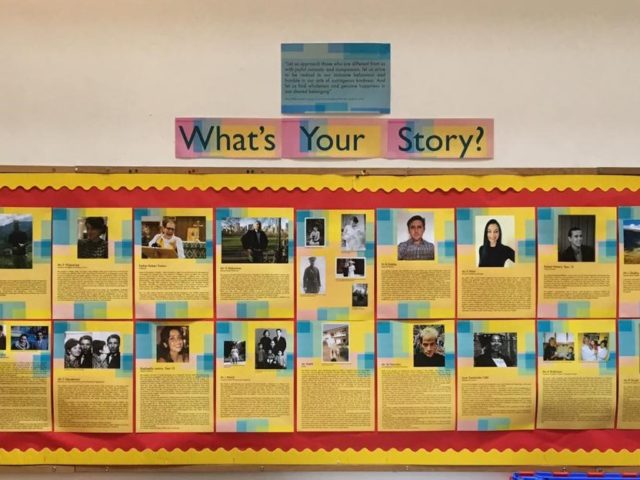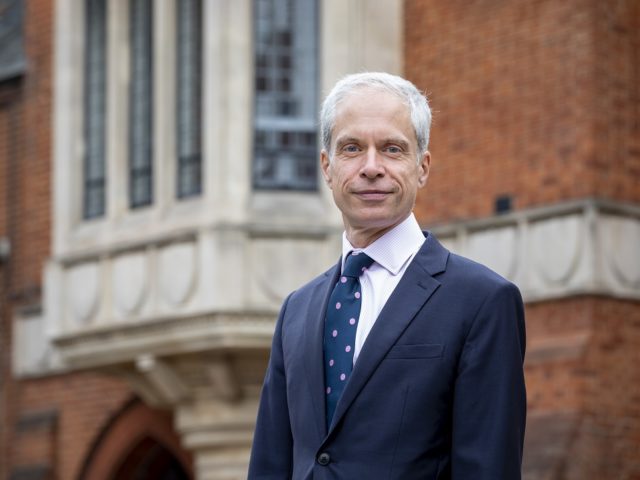The fear of becoming a hologram head during lock-down has led me to rely on these blogs to reach out to the many of you I used to see day by day, and I have been writing every week to date. I had begun to worry whether I’d end up repeating myself, little knowing what the world would throw at us in these weeks since we went remote. But still, I do find myself returning to an earlier thought, which is that Covid-19 is just telling us what we could and should have seen before.
George Floyd’s death in police custody on that first Monday of the half-term break, when all the talk was of day-trippers flooding to beauty spots across the UK and the potential for spreading the virus on the crowded beaches and in queues round ice-cream vans, was brutal and horrific; even in a pre-pandemic world with a different president, it would have provoked sorrow and rage which would surely have been expressed in protests. George Floyd’s death, however graphically captured on film, isn’t the first death of a Black American in police custody but perhaps the first to have provoked an equally visceral, deep-seated response beyond the USA, not least in Britain.
Not every British black person will yet have been able to articulate their feelings; fewer still will have been heard, but those who have done so include former pupils of independent schools, including Highgate: a group of 187 alumni wrote an open letter to the Independent which I know you will want to read.
The devastating impact of Covid-19 on British black people may be the starting point, but it’s not actually the point at all: we may have all the legislation and policies we need to ensure that racism will not be tolerated, but the daily experience, even in the most privileged, affluent, ostensibly tolerant contexts has been, and is, one where black British pupils, to quote, face (among much else) ‘continuously having [their] name mispronounced, people doing “African accents”, making jokes about the one black teacher [they] ever had (who was supply for 2 weeks) being [their] uncle and the air of “casual racism” that was seen as very acceptable throughout all of [their] time at school.’ The writers of this letter conclude that a shift from not tolerating racism to being actively anti-racist will not come without profound commitment and systemic change.
In the midst of pretty pressurised deliberations and preparations for returning to school for some and not for others, I fear that I did need that letter to make me focus on the issues facing all schools and Highgate in particular. Before that letter, we had a strategy plan to increase the numbers of children from BAME backgrounds applying for and accepting places, and to increase applications from BAME teachers for posts here; we had started work on listening to current BAME pupils, in Year 12 initially, about their experiences. Those remain important objectives for us, but that letter, with its careful, nuanced, balanced expose of racism and the causes of British racism, shows how far deeper we need to go.
There’s a danger when writing anything, but particularly a blog like this, that the pressure to grab and hold onto your attention makes one neaten and package issues which can’t and shouldn’t be; blogs aren’t great places to show intent, either. But a blog is what we have, so please bear with me: there will be more, much more, to come.
Can white leaders and teachers make the changes to tackle racism and the conditions which racism, casual or overt, thrive? Of course, we must aim to and diversify our teaching staff and the talent pool which will provide future school leaders, but we can’t wait: waiting becomes an excuse for inaction. White head teachers are what so many schools have, including us, and they, we, have to lead, and not to do so is to abrogate responsibility to a vacuum. What we are hearing, we already knew: Macpherson told us; The Windrush Report reminds us; black alumni, Covid-19, George Floyd – do we need anyone else, anything else, to get us to act, to become active in our anti-racism?
I have to hope not. As you’ll know, I believe that schools are places of optimism or rather, where optimism works well – something about the ever-renewing energy of youthfulness; that doesn’t mean things are easy just because we’re positive, committed, upbeat and determined, but it means we don’t let ourselves be frightened into cautious, risk-averse inaction or be tempted into diversionary self-guilt. We are talking to our young people, and listening, while we act, and I want them and you to know that we don’t want to add to their insecurity or anxiety, or to make them feel guilty, or to make this ‘their problem’: this is their opportunity, and we must, we will, equip them, this brilliant generation, to use the circumstances presented by Covid-19 to make, to build, to create, to forge that fairer society they so passionately want.


